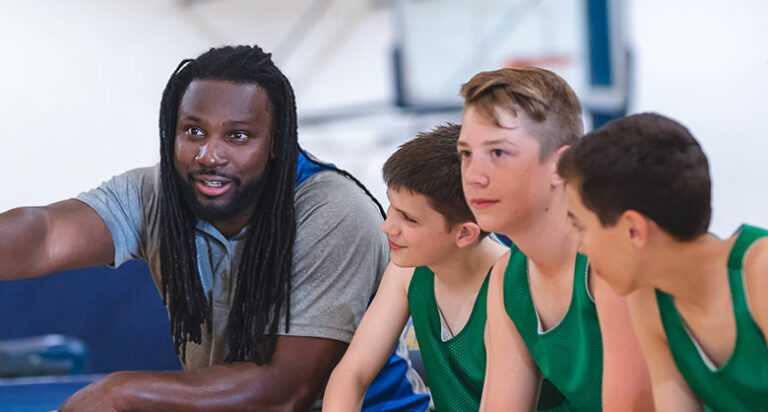Preventing
Trauma-Sensitive coaching

Though this guide focuses on sport-related emotional and physical abuse and misconduct, many children encounter trauma and abuse in other areas of their lives—which can affect how they behave and react in their sport activities.[11] Each person is affected by abuse and misconduct differently: be alert for unexplained emotional, behavioral, and physical changes so you can respond to them with sensitivity.
Potential effects of trauma
Emotional/
Psychological
Depression and anxiety, anger, low self-esteem, feelings of self-blame, shame, and embarrassment
Physical
Stomachaches, unexplained illnesses, headaches or dizziness, unexplained exhaustion
Behavioral
Self-harm and suicidal thoughts, changes in relationships or physical appearance, loss of interest in sports
Emotional/Psychological
Depression and anxiety, anger, low self-esteem, feelings of self-blame, shame, and embarrassment
Physical
Stomachaches, unexplained illnesses, headaches or dizziness, unexplained exhaustion
Behavioral
Self-harm and suicidal thoughts, changes in relationships or physical appearance, loss of interest in sports
A common form of childhood trauma is Adverse Childhood Experiences (ACEs), which include abuse, neglect, loss of a parent (through divorce, death, or abandonment), household challenges (such as a family member incarcerated or struggling with substance abuse), community violence, and racism.[12], [13]
You will likely work with athletes who have experienced trauma (even if they have not told you[11]). Trauma can impact children’s brain development and overload their stress-response systems, causing them to act in ways you may find confusing, unnecessary, or overreactive—but actually are the brain’s way of protecting the child.[12]
Trauma-sensitive coaching means being sensitive to the needs of athletes who have experienced trauma. Trauma-sensitive coaches always assume they are working with people (athletes, parents, or other coaches) who have experienced trauma.[11] When coaches prioritize relationship-building, have a consistent structure, and care about athletes’ well-being—hallmarks of trauma-sensitive coaching—all athletes perform better, not only those who have experienced trauma.
Example
Eva is new to your fencing program after recently coming to live with her grandmother. You notice that she freezes up and mentally shuts down whenever anyone raises their voice during practice. Instead of yelling at her to focus, you and your assistant coach talk privately with her to find out what is going on in her life. You learn that Eva grew up in a home with domestic violence, past experiences that cause her to react strongly to yelling.
Sport’s positive benefits are especially helpful for young athletes who have experienced trauma. Having a safe, caring, supportive, and consistent relationship with an adult can significantly help children heal.[11]
Learn more
Visit the below pages for resources and links to help you recognize, prevent, and respond to abuse and misconduct in your organization.
TOOLKIT RESOURCES
Use these Toolkit handouts and activities to help your team or colleagues discuss principles together and put them in action in your sport setting.
HELPFUL LINKS
A broad range of organizations and community resources are just a click away to help coaches, parents, and other athlete allies support individuals in need.
